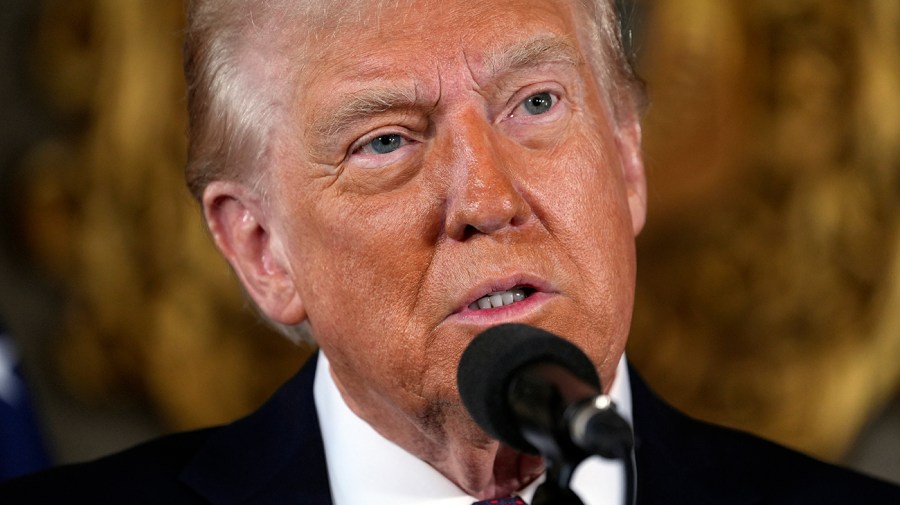
As Donald Trump becomes America’s 47th president, one wonders if he is experiencing buyer’s remorse.
Barack Obama was surely dealt the worst hand of any president since Lincoln before the Civil War and Roosevelt with the depression inheriting two unwinnable wars and a financial crisis. Yet ironically, Trump may not be far behind.
First, Trump must deal with the TikTok mess. One hundred seventy million Americans use the Chinese-owned social media platform. Trump became a fan when TikTok rallied many of his supporters.
U.S. law, overwhelmingly passed by Congress and signed by the president last May, required the company to be sold to an American owner or else shut down. The reason was that the algorithm was stealing literally tons of data that the the company is obligated to share with the Chinese Communist Party.
Also, because the statute of limitations lasts five years, a buyer now does not know what the next administration will do, posing liability risks possibly mounting into the trillions.
Now TikTok is Trump’s problem. Good luck with that! If TikTok is forced by law to shut down because a buyer will not be found, this will be a huge political setback for the new administration.
Trump also is taking credit for the Gaza truce and ceasefire. Yet although three hostages have been released alive so far, even then Israelis do not know how many of the first wave of 33 will actually still be living. The same applies to the remaining hostages to be be exchanged in future phases.
Indeed, Israelis are not happy that many of the Hamas prisoners released have killed their countrymen and women. Hamas is still engaged in combat against Israeli forces. And the complicated agreement is filled with ticking time bombs that could terminate it.
Should Gaza explode, because Trump has taken so much credit for the deal, he will then have to deal with the consequences. And a new president does not need that.
Further, Congress has to pass a budget and approve a debt ceiling increase after confirming Trump’s nominees. So far, it appears that all, including Pete Hegseth, will make it through.
But here is a further complication. Trump may have secretaries in office, but otherwise, the closets are bare. At the State Department, virtually all of the ambassadors have been recalled, so charges or deputies will take their positions.
The same applies to all departments. At Defense, if reports or rumors prove correct, certain senior admirals and generals will be gone. Who will take their place and how quickly can they be confirmed?
This is not a trivial issue. Suppose an international crisis takes place, like the knockdown of a U.S. reconnaissance aircraft in the first days of George W. Bush’s administration. Who will be able to negotiate? Only the secretary of State and the national security advisor in the office at that time.
And suppose the Chinese, unhappy with an adverse TikTok decision, retaliate by threatening Taiwan or the Philippines? The administration will simply not be sufficiently organized to respond.
This is not even a critique of Trump, but an obvious observation about the nature of the U.S. government and the reality of its transition processes. Unlike a parliamentary system, such as Great Britain’s, whose shadow cabinet can instantly form the new government, it usually takes a year or so for an administration to be fully formed.
What can be done? Not much. The Trump transition process probably will be seen as one of the most efficient in some time, but it still leaves huge gaps to be filled.
The ideal solution is that presidential nominees should form shadow cabinets during their campaigns. This would allow background investigations to be completed well before the election.
Also, for each position, subordinate officers should be nominated perhaps down to the assistant secretary level. The problem here is that nominees must not presume they have been confirmed beforehand and anger senators over advice and consent. Yet, these are minor problems.
Perhaps Trump’s TikTok and Hamas problems will be resolved. But if they are not, and if Congress cannot agree on a budget or on raising the debt ceiling, the new administration’s honeymoon could be nonexistent.
One hopes that Trump II will not be put in this position.
Harlan Ullman, Ph.D., is United Press International’s Arnaud deBorchgrave Distinguished Columnist, senior advisor at Washington D.C.’s Atlantic Council, chairman of two private companies and principal author of the shock and awe military doctrine. His next book, due in 2025, is “The Great Paradox: Strategic Thinking in an Unstrategic World.”












